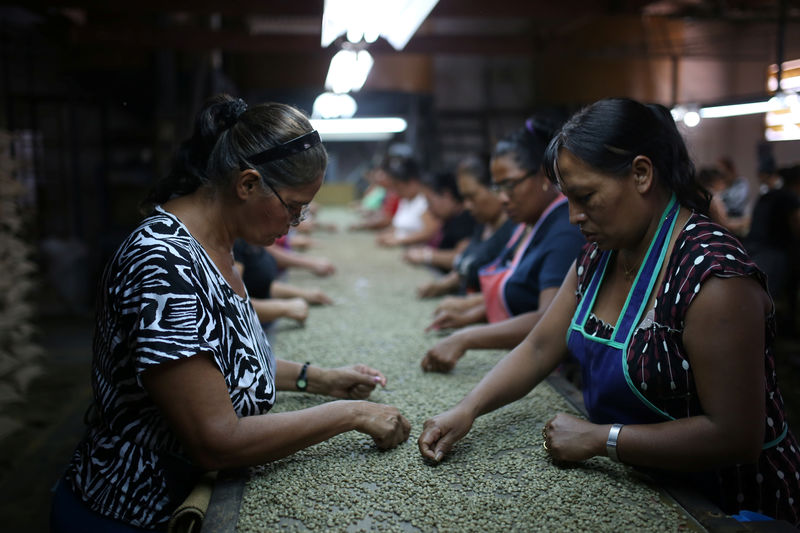By Marcelo Teixeira
BOSTON (Reuters) - Traders are diverting coffee shipments that were initially expected to go to Russia, and some have stopped selling to that market altogether, attendees at a U.S. coffee conference said.
Although food trade is not included in sanctions imposed on Russia after its invasion of Ukraine, difficulties in processing payments from Russian importers and concerns about the safety of ships in the Black Sea have cut shipments of coffee and other goods to the country.
Russia, which calls its actions in Ukraine a “special operation,” is among the five largest coffee importers in the world. Consumers in Russia are hoarding food due to worries that supermarkets will run out of supplies.
Coffee prices have surged more than 20% in Russia due to higher costs, broker HedgePoint said last week. The brokerage estimates that the ongoing war in Ukraine will lead to demand reduction of around 1.3 million 60-kg bags.
European food trader Marex sees the hit to coffee demand higher, at around 1.8 million bags.
Olvin Lopez, commercial manager at Honduras-based coffee exporter Inloher, said he had instructions from his firm's partner, the French food trader Sucden, to redirect a coffee shipment leaving Honduras bound for Russia to the port of New York instead.
"They didn't say why they are rerouting the cargo, but it is probably due to logistic issues," Lopez said on the sidelines of a SCA Coffee Expo in Boston.
A coffee trader working for an international dealer, who asked not to be named, said soft commodities trader ECOM had decided to stop any business with Russia while the war continues.
Sucden and ECOM did not return requests for comments.
Another trader said, however, that some countries continue to supply Russia with coffee, notably top grower Brazil.
"People don't like to say much, but there are deals going on, using crypto," he said. In addition, one coffee co-op was closing a barter deal with a Russian dealer, where coffee would be swapped for fertilizer, the trader said.
